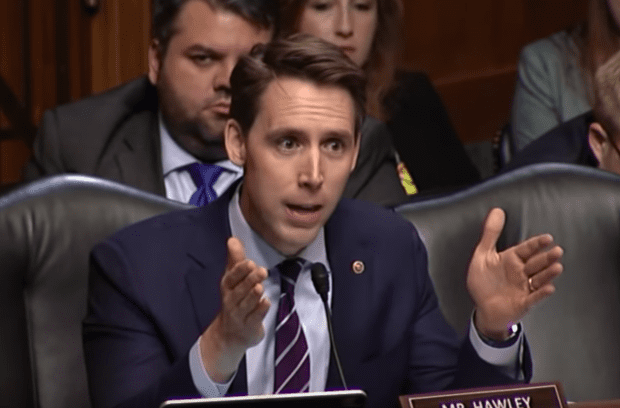China Hawks vs. the American Public

Sen. Josh Hawley repeats the main themes of his CNAS speech from earlier this month in an op-ed for The Wall Street Journal:
At this critical juncture, we must abandon the attempt to remake the world and focus on the threat from Beijing. China is not yet so strong that its bid for dominance can’t be resisted. But time is not on our side. Our aim must be to prevent a conflict while securing American prosperity and safety.
We can begin by bringing to a close the “forever wars” in other theaters and redirecting our military’s attention to the Asia-Pacific. There we must forge new alliances and strengthen partnerships to counter China’s threat. We must be prepared to use all the tools at our disposal, including trade and other economic levers, to protect U.S. interests.
Hawley makes clear that he thinks that the U.S. needs to prioritize opposing China over everything else. This aligns him with an increasingly hawkish consensus that the U.S. needs to be doing more to resist the growth of Chinese power and influence. Interestingly, it also puts him at odds with a large majority of Americans that believes the U.S. should be reducing its role in the region and calling on allies to pick up the slack when it comes to their own security. The Eurasia Group Foundation released the results of their 2019 survey, and it contains a number of interesting findings about public opinion and foreign policy. One of these is that 57% believe the U.S. should reduce its military presence in Asia. Only 42% believe the U.S. should increase troop levels and increase its naval presence in the region. When pressed to explain why they want to reduce the U.S. military presence in the region, respondents cited the fact that our allies are wealthy enough that they can provide for more of their own defense and they expressed concern that the U.S. presence might provoke more aggressive Chinese behavior that could lead to an unnecessary war.
I cited their previous survey in several posts earlier this year. The common theme from both surveys is that most Americans favor greater restraint and they are less inclined to use force than they were in the past. The public’s appetite for reducing U.S. burdens overseas is not limited to ending the forever wars, but also extends to reducing the size of the U.S. military presence overseas in other parts of the world besides the Middle East. Most Americans are not interested in ramping up a new confrontational policy with China with all of the costs that would entail. The gap between Washington and the country on this point is quite wide and may be growing wider. Here is more evidence that there is a significant gap between the public and “the Blob” on a wide range of issues.
The new EGF report concludes:
While many have given into “the new red scare,” the majority of respondents still favor reducing America’s military footprint in Asia. They instead call on U.S. allies to help fight off Chinese influence and overreach, sharing the responsibility for regional peace and stability. Like other policy priorities in Washington, American public opinion contrasts with the current national security strategy on how to respond to a rising China [bold mine-DL].
Hawley argues that the U.S. needs to oppose Chinese ambition, which he says is “nothing short of domination—first of the region, then of the world.” The second part of that seems like a serious exaggeration, and it’s clear that most Americans aren’t buying the need for confrontation.